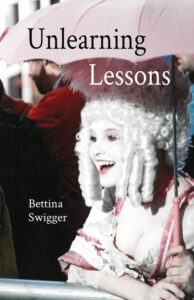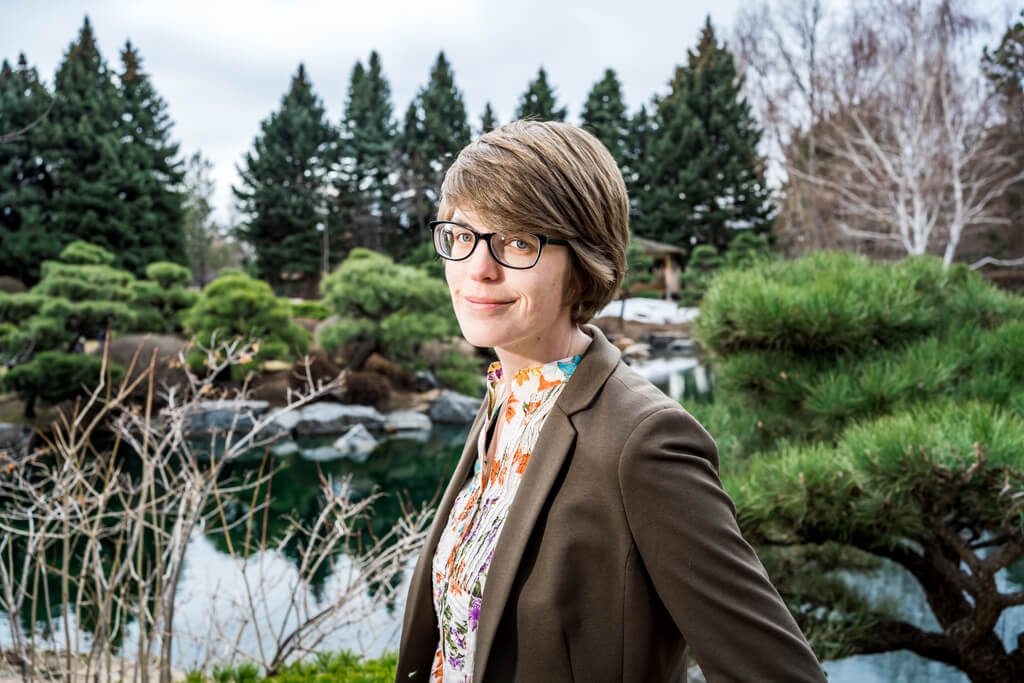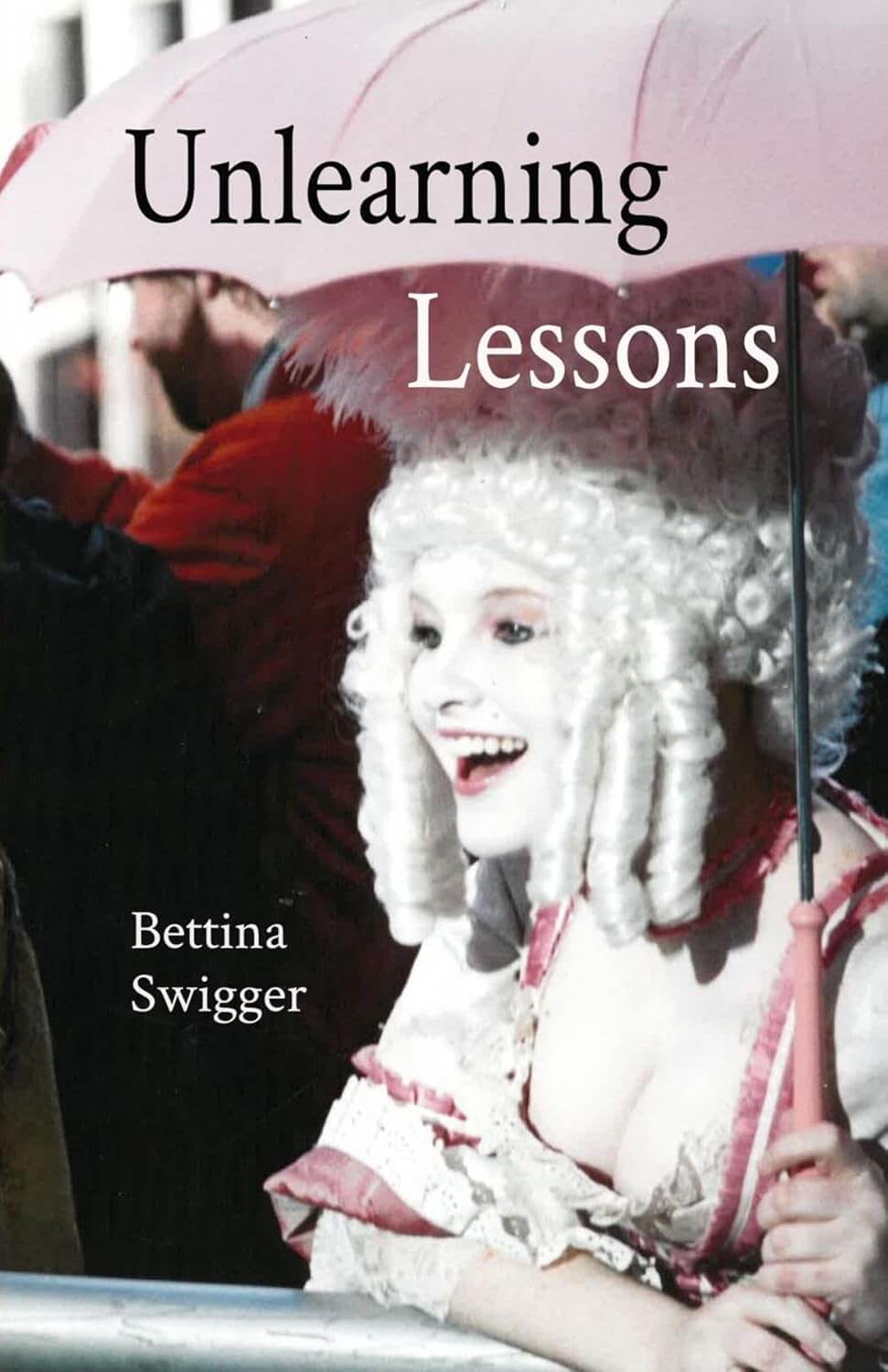It’s not you, it’s me
Lessons about letting go in a debut chapbook of poems
Lessons about letting go in a debut chapbook of poems
In her debut chapbook, Unlearning Lessons, Boulder-based writer Bettina Swigger explores the mundane details of our everyday lives. While Swigger may not seem like a typical poet—she is the CEO of the Downtown Boulder Partnership and has built her career within the nonprofit sector—she has a talent for dissecting moments with candor and grace.

Bettina Swigger
In this collection, she discusses her teenage fear of sneezing while driving, the crumbs that collect in her bra while she eats French bread on the way back from the grocery store, the house being built next to her home where once an orange tree grew. Through these details, she draws the reader into her inner and outer worlds. These are comfortable spaces that invite the reader to linger.
The poems in this collection cover many topics, and connecting them is a continuous meditation on love in its many forms. Swigger begins the book by discussing her mental health and the struggles she’s endured to reclaim herself. In the poem “Ode to Anxiety,” she uses second person pronouns to breathe life into her own nervousness, imagining it as a living creature clinging to her with a prehensile tail. “Constant companion,” she begins, “it’s time to talk.” She compliments the creature, praising the skillful way it does its job. She identifies her own responsibility in keeping it alive and implores it to understand her position. And then she leaves it behind.
But now, my unsubtle friend,
it’s time to let you go.
I feel you resist,
a lover knowing it’s over but unwilling to say goodbye.
You thought you were protecting me,
and you were, in your way.
But I’ve found someone else.
It’s not you. It’s me.
Swigger’s decision to begin with this lesson in love is wise, a break-up cliché wrapped in truth that can’t be denied.

To purchase, click here
While there is a lot of quiet celebration and care for the world within this book, there is loss too. Swigger touches on the death of her mother and the words they never said to one another. What was spoken aloud, and what was only silence? The speaker does not know, cannot remember, and so talks to herself again and again, fills up the void where her mother once was with all the things she wants to say: “And as for last words, they were on the phone, / hundreds of miles and many months between us / I hope they were “I love you” and “goodbye” / Or maybe I was busy, in a hurry to end the call and / I forgot to say it. / That’s why I keep saying it now, in our talks these days.” Perhaps the most powerful thing about love is its ability to keep the dead alive. When our loved ones are gone, we speak to them still—we share our struggles and worries and moments of triumph in discussions that are simultaneously easier and more challenging than those we had before their deaths. Swigger’s reflection on these discussions encapsulates the regret and need that reside in the relationships that end before we’re ready to say goodbye.
Near the end of the book, in a poem that lends its name to the entire collection, Swigger considers the anti-definitions of love. She moves out of herself briefly to wonder about our societal obsession with love: “We all talk about it endlessly; / we can’t stop singing about it. / The pop songs and the arias bleat out the common theme.” It’s odd, really, how deeply this emotion permeates our individual and collective existence, how we read and watch and live the same arcs of romance over and over and yet somehow never tire of them. Once love is gone, we have what the poem’s speaker calls a “notness.” We don’t have love, but we used to. We don’t understand it, but we used to. And the process of teaching ourselves again is never easy. As the speaker explains:
So I’ve put in the time.
I’ve said it a million different ways,
out loud, in poems, with my flesh.
It feels different every time,
so fresh and new,
And it’s the same every time I learn what it isn’t.
This is what Swigger means by “unlearning;” it’s a core process of sentient existence. We can only know what we know when we don’t know it anymore.
While Marissa Harwood was born in Omaha, Nebraska, she moved to Colorado when she was four days old and considers herself a native. She grew up in the shadow of the Rocky Mountains and spent much of her childhood camping, hiking and building forts in the woods. She earned a BA in English and a Secondary Teaching License from the University of Colorado at Boulder. Later, she attended Western Colorado University and earned an MFA in genre fiction. She has taught English at three K-12 schools and two Colorado colleges. Currently, she lives in Greeley, where she teaches high school, plays with her daughter (a true CO native) and reads a lot of books. She hopes to earn a doctorate in the near future.
Click here for more from Marissa Harwood.

